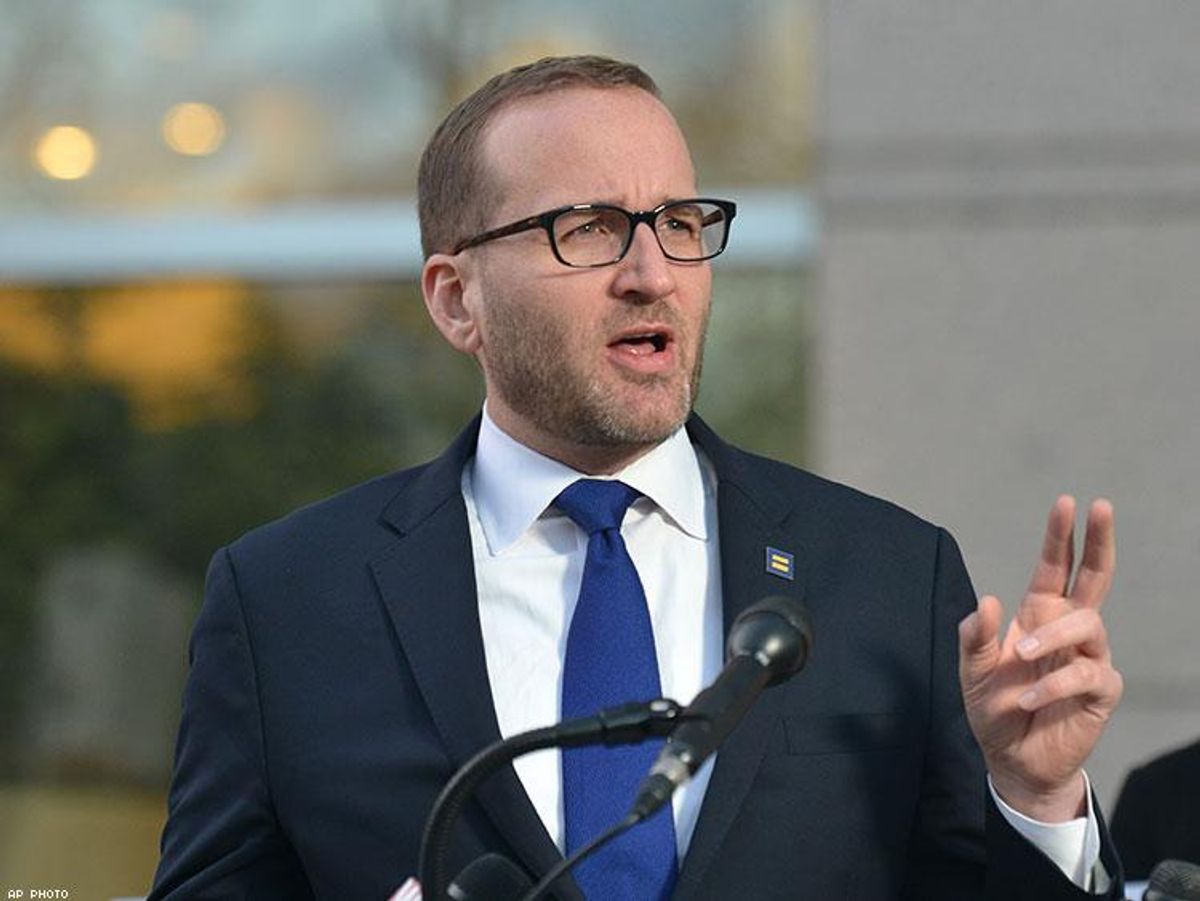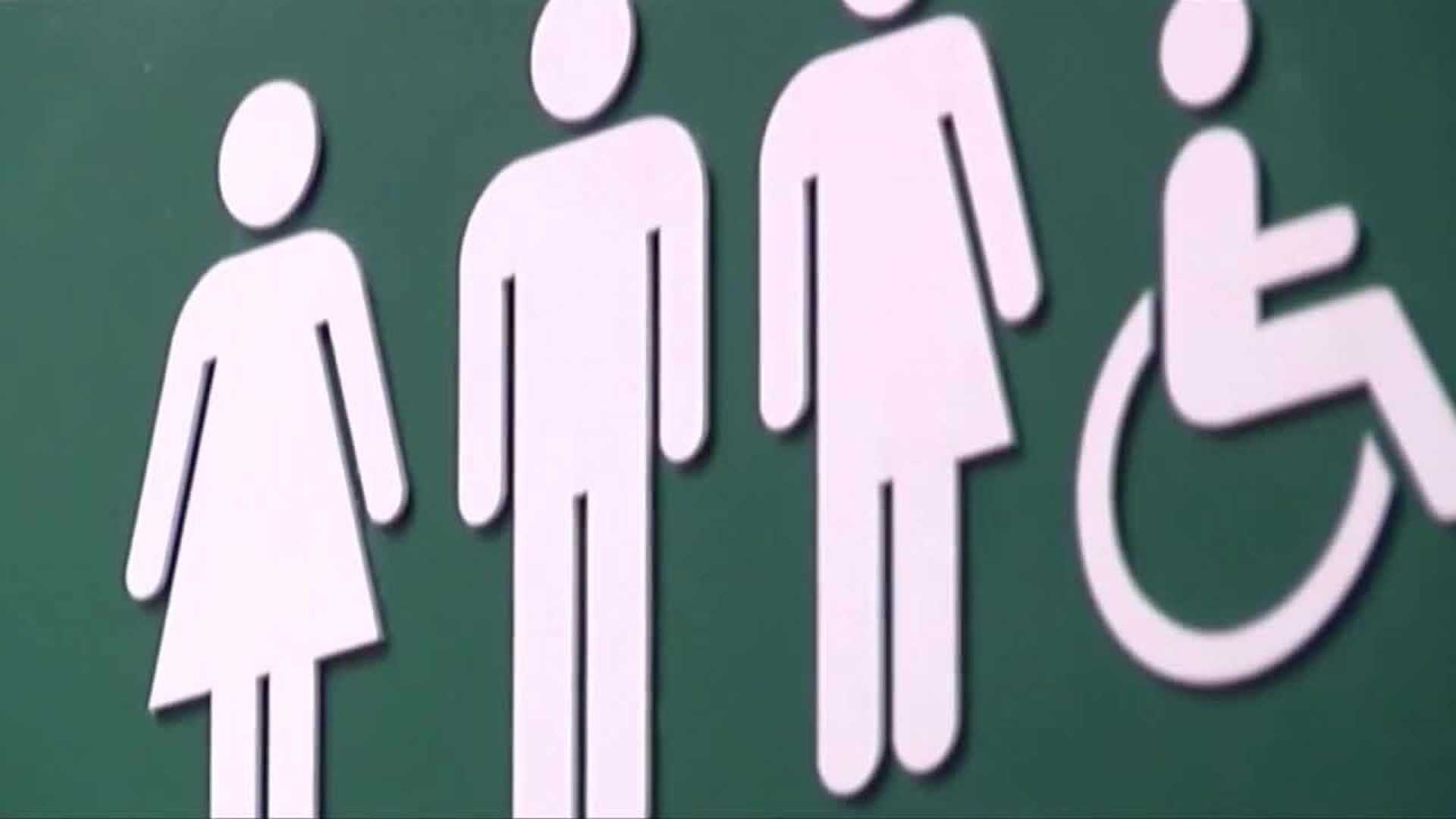Gov. Roy Cooper has signed a bill that partially repeals House Bill 2. Critics are labeling it a poor "compromise" because it includes a moratorium that prevents cities in the state from passing nondiscrimination ordinances until December 2020. While the bill repeals HB 2's provision mandating that transgender people use restrooms that match their birth certificate -- rather than their gender identity -- it still leaves control of bathroom access in the hands of the legislature; that means if a Republican governor is to be elected in the future, he or she, along with legislators, could decide to once again dictate what restrooms transgender people use.
The repeal was rushed to a vote Thursday morning because of an NCAA ultimatum, demanding that North Carolina repeal HB 2 by noon or else the state would lose the opportunity to host championships until 2022. The state usually hosts NCAA championships every year, which brings added revenue to the state.
The original law, adopted last year, prevented local governments from enacting or enforcing LGBT-inclusive employment nondiscrimination or public accommodations ordinances (affecting private businesses or contractors) and barred transgender people from using the restrooms, locker rooms, and other sex-segregated facilities that correspond with their gender identity, if these facilities are located in government buildings, including public elementary and secondary schools and state colleges and universities. It also barred localities from setting a minimum wage higher than the state's, and until an earlier change, revoked the right for employees to sue for discrimination in state court.
The new measure repeals HB 2 but leaves the issue of restroom access totally up to the state, CNN reports, preventing localities from adopting laws like the LGBT-inclusive public accommodations ordinance in Charlotte that spurred the state legislature to pass HB 2. It further "prevents local governments, until December 2020, from passing or amending their own nondiscrimination ordinances relating to private employment and public accommodation," according to CNN. However, those that had such ordinances already in place may now enforce them.
The Human Rights Campaign is critical of the repeal measure. "The rumored HB2 'deal' does nothing more than double-down on discrimination and would ensure North Carolina remains the worst state in the nation for LGBTQ people," said HRC president Chad Griffin. "The consequences of this hateful law will only continue without full repeal of HB2. Sellouts cave under pressure. Leaders fight for what's right."
The American Civil Liberties Union released a statement opposing the new law. "Lawmakers must reject this disgraceful backroom deal that uses the rights of LGBT people as a bargaining chip," said Sarah Gillooly, policy director for the ACLU of North Carolina. "The way to undo HB2's profound damage to North Carolina and its people has always been a full, clean repeal, but this proposal would keep anti-LGBT provisions of the law in place and continue to single out and target transgender people."
Transgender Law Center executive director Kris Hayashi issued the following statement: "While the legislature and governor rescinded the birth certificate requirement under HB 2 today, in order to obtain this concession they bargained away the civil rights of transgender people by removing the ability of cities and school districts to protect them in the future. And while transgender people may use the bathroom consistent with their gender identity as a result of this concession, they have no legal recourse if anyone should bar them from the bathroom. At best, this is a step forward and a step back. The transgender people of North Carolina deserve better."
And Mara Keisling, executive director of the National Center for Transgender Equality, denounced the rush to pass the bill and called on the NCAA "to stand firm and to continue to withhold championship games from North Carolina until the discriminatory anti-transgender law have been completely repealed." The new law, she said, "is a disgrace -- not a 'fix,' a 'reset,' or a 'compromise,' and certainly not a repeal. Putting any kind of moratorium on civil rights -- whether six months or three years long -- is dangerous and wrong."














































































